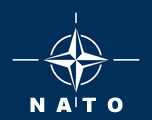Boost Afghan forces by 20,000 men, NATO commander says
 Mons, Belgium - NATO should boost the number of its troops in Afghanistan by up to 20,000 men, a 40-per-cent increase from current numbers, if it wants to stabilize the country, NATO's top military commander said Monday.
Mons, Belgium - NATO should boost the number of its troops in Afghanistan by up to 20,000 men, a 40-per-cent increase from current numbers, if it wants to stabilize the country, NATO's top military commander said Monday.
The United States is set to deploy an extra brigade (up to 5,000 men) to Afghanistan in 2009, and "we are looking at how to resource a request from (NATO command in Afghanistan) for three more brigades," NATO military commander General Bantz J Craddock told journalists at the alliance's headquarters in Belgium.
NATO currently has just over 50,000 men in Afghanistan under the UN-mandated International Security Assistance Force, but they are facing an increasingly bloody challenge from the Taliban, especially in the restive East and South of the country.
"Where the security is problematic today is about the same places as it was a year ago ... but it is more virulent and it is at a higher tempo than it was last year," Craddock said.
NATO member states are also eager to train and equip the fledgling Afghan National Army and police force, with a view to handing over more responsibilities to local forces. Of the four brigades needed by ISAF commanders, one would be for police training, Craddock said.
But concerns remain over whether NATO member states will be able to come up with the troops which their generals need.
The alliance's 26 members "are committed to European Union operations, UN operations, they have national interests. The force pool available for us to draw from is down considerably," Craddock said.
"If we are looking for four brigade combat teams ... you start to narrow the field of where they might come from very quickly. When you look at the nations and what is available, there are very few, almost ... none, who can provide a brigade combat team immediately," he said.
Despite the shortfalls, however, NATO has begun operations against the drug trade which is the Taliban's main source of income.
"It is not moving as fast as we want, (but) there were a couple of operations last week ... If we can take some of that money away we are going to see a significant change in the operations of the insurgents," Craddock said.
And it is putting major efforts into avoiding civilian casualties, which remain a source of friction between NATO and local authorities.
"In an insurgency, it would be very difficult to avoid civilian casualties at 100 percent. I don't think it is possible, (but) we are going to ever greater lengths trying to do this," Craddock said.
"We cannot have civilian casualties that cause people to lose confidence or trust in the international forces," he said. (dpa)